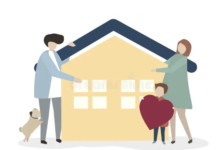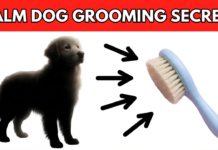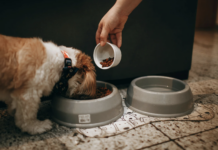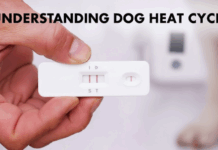Last Updated on February 20, 2022 by Dogs Vets
How much attention does my pup need in a day?
When a small puppy is brought home, he is introduced to a strange and frightening world. They’ve recently been separated from their mother and must adjust to a new environment while maturing and learning proper behavior. This is the crucial stage of their development, and they need attention and care.
Being a veterinarian, I will guide you on how much time your puppy needs and tell you some of the typical behavior of puppies during the adulting phase.
How can you make a strong relationship with your puppy?
When you get a puppy, it’s crucial to think about what they’ll need. Not only do you need to budget for food, vet bills, training sessions, and other necessities, but you also need to schedule your time to have a healthy relationship with your dog.
How much time you need to spend with your puppy may vary depending on breed, age, and overall health. We’ve divided down each age group and the amount of time you should spend with them.
Time-plan for a 3-6-month puppy:
Plan on spending at least 2-3 hours every day, on average, training and playing with your puppy. When deciding to buy a puppy, think about how it will affect you over the next 10-15 years and whether it will fit into your lifestyle.
Although some breeds demand less attention and time, it is vital to spend adequate time training your puppy to avoid behavioral changes in your dog.
It would be best if you spent time on their:
- Socializing
- Potty training
- Vet visits
- Dog walks
- Playtime and teaching basic manners.
The amount of time each of these categories takes up during your day is very dependent on your dog.
Puppies brought by a breeder or foster parent who begins potty training at the age of 3–4 weeks will benefit.
Potty training a puppy from a mill rescue who has spent their entire life using the bathroom in their kennel will take more time and effort.
Puppies who arrive from a place where they were checked for parvovirus, parasitic worms, or another avoidable condition will require less veterinary time and treatment than puppies who come to you with parvovirus, parasitic worms, or another preventable infection.
When your puppy is older than 3 months, your focus should be on appropriate socialization, potty training, and household manners until your dog is four months old.
Later on, you’ll have lots of time to work on teaching tricks and obedience to him. Right now, you should focus on developing a well-mannered dog and avoid developing bad habits in him.
Socializing: Good socialization can make your puppy happy. I would advise you to spend at least one hour with him, focusing on his socializing opportunities. You can take your puppy to
- You can take your puppy for a walk in a different location, such as on a secluded, wooded trail rather than on a busy city sidewalk.
- You should play sounds to get your puppy used to thunderstorms, falling pots or pans, fireworks, and sirens, among other things.
- Dress him up in a variety of outfits so that your puppy, who was born in the summer, doesn’t freak out seeing people in the winter wearing snowsuits, caps, and scarves.
- Visiting a friend’s dog or enrolling in a puppy socialization class to meet new dogs and playmates
- Buy him new puzzle toys and games that provide chances for enrichment and investigation.
How much time does a 6 to 12-month puppy need?
Your puppy should be well on his way to being potty trained by six months old. Now his socializing stage is completed. It is the time to spend on exercising good manners and training mostly.
With these best puppy training techniques, you can get your dog’s training off to a flying start.
It’s important to be flexible regarding your dog’s exercise and how much attention they’ll require from you.
You should spend some time in his training classes. It’s a good idea to enroll your puppy in a basic obedience learning class at this age so he can learn how to behave around other dogs and people.
By the time your puppy turns 12 months, his training hours are almost over. If you’ve been dedicated up to this stage, you’ll most likely be able to reduce the number of hours you spend training your puppy.
If you have not trained your puppy, your training time will surely increase as you try to cut down bad habits from him. This is why it’s critical to devote as much time as possible to your puppy in the beginning.
At this age, Puppies sleep about 18 to 20 hours every day. It’s fine to limit their interaction time to roughly three hours per day.
How much time does a senior dog need?
There are some unique considerations for senior dogs, just as for pups.
For example, many older dogs will sleep or rest for up to 18 hours every day. This is a natural sign of growing older, including a loss of energy.
In their later years, some senior dogs grow more affectionate. If this is the case, they should be lavished with extra attention to help them relax and feel at ease.
Other elderly dogs would prefer to have more alone time. If they live with other dogs or youngsters, they might appreciate having their own space to sleep.
Take care of their health when they are getting old. Also, make sure you have frequent medical checkups.
What will happen if you don’t spend enough time with your puppy?
A dog who could not enough time with its owners may express their dissatisfaction in a variety of ways:
- Howling or barking incessantly
- Destructive behaviors in the house.
- Urination at home is a common occurrence.
- Hair loss is a common problem.
- Low energy and a loss of appetite
- Depression
- Your dog may become an attention seeker.
Why do dogs become attention seekers?
These are some common reasons why dogs tempt to be attention-seekers.
- They might be bored.
- This could be due to a lack of exercise.
- They might not be getting enough mental stimulation.
- Another dog could be the reason.
Dogs are naturally friendly and value our attention. That’s why we keep them as pets. So, every time your dog jumps up at you, paws at your leg, barks for no apparent reason, or uninvitedly drops a toy in your lap, it’s easy to reward them with a cuddle or a game.
However, this reinforces the unwanted behavior, causing your dog to repeat it.
You are the only one who can determine whether you love this interaction or see it as a problem.
How to treat attention-seeking dogs?
If you give your dog what he needs in terms of physical and mental activity, as well as social relationships, he will never be an attention seeker.
What matters is that you reward your dog when he does something you want. Unfortunately, for many dogs, the only way to attract their owner’s attention is to do something their owner considers “bad.”
They ignore them even when they are lying and doing nothing. This behavior leads your dog to be an attention seeker.
Steps to prevent attention-seeking:
- When your dog is behaving well, please don’t ignore them.
- When they are doing what you desire, please pay attention to them.
- Reward positive behavior so that they understand how to grab your attention in the most effective way possible.
- If your dog seeks your attention at an inopportune time, it’s because you’re not giving them enough of it at the appropriate time.
- If you are giving them proper attention, your dog has no reason to demand additional attention from you.
- Ignore them entirely if they do something you don’t want them to do. Please don’t talk to them, and don’t even look at them until the bad behavior ends.
You can prevent attention-seeking behaviors through tolerance, compassion, and management, but if you’re having trouble, seek help from a vet or dog caretaker.
Final Verdict:
Puppies require up to 3 hours of care per day, divided into training, socializing, and exercise periods. Puppies will grow up to be happy, healthy, and well-behaved if they receive the proper amount of attention.
To summarise, puppies require a significant amount of care, but not so much that they have to rely on your attention to function.
Apart from the extra instruction, owners should not offer them any more care than an adult would. This will aid in the prevention of over-dependence and undesirable behaviors.
We hope you find this article helpful and get the answers to your questions. Now I’d like to hear from you; what is your take on how much time a puppy needs? Scroll down to the comment box and share your reviews.
Facts Check:
We hope you enjoyed this article… What are your thoughts on How much attention does my pup needs in a day?
Рleаse let us knоw yоur thоughts in the соmments seсtiоn. Feel free to share with us in the comments section below.























